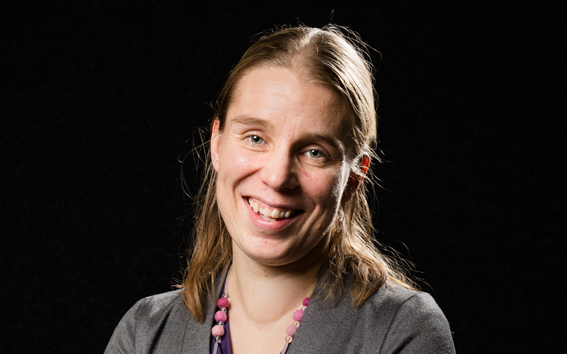Riitta Silvennoinen, Sitra
"Your dream job may not even exist yet: lifelong learning is a great opportunity to learn new things all the time. Women are needed for all jobs and professions."

What have you studied and how did you choose this option?
I studied chemical engineering at Otaniemi, graduating first as a graduate engineer and then as a licentiate of technology. My studies focused on technical chemistry, factory design and biochemistry. I also went on an exchange to Madrid, where I not only learned the language but also made great friends. In high school, I liked maths, physics, chemistry, physical education and biology I thought studying in Otaniemi could be interesting. In my matriculation exams, I scored higher in chemistry than in physics, so I decided to apply for chemistry as my first choice. I also studied for a teaching qualification while working on my licentiate.
How did you become a circular economy expert at Sitra?
When I finished my masters, the job market was quiet and I had the opportunity to stay on to do my licentiate work at a university. While studying, I worked as the student union's international relations secretary and as the EU coordinator for the university's teaching support. The work as a researcher was interesting, but I found myself longing for new and bigger challenges.
First, I found challenges at home in the diaper-changing sector. After maternity leave, I moved to Pöyry, in the chemical industry, as a process expert and consultant. I saw many interesting companies and was inspired by St1's vision to make fuel from waste. I moved from Pöyry to St1 to develop bioethanol processes and was involved in building the world's first plant in Kajaani to make bioethanol from sawdust. At this point, the idea of circular economy jobs where I could use my skills became clear to me. A position as a circular economy expert opened up at Sitra just in time, and for the past 2.5 years I have been improving the world through circular economy.
What is the best thing about being a circular economy expert?
I get to be part of creating a better world and stopping climate change. Although it's a huge job, it's motivating to see how things are starting to move in the right direction and people are realising new opportunities to act within the limits of the planet.
It's great to get people excited and realise how they themselves can take action to promote the circular economy in their work and everyday lives.
What have been the highlights and most important lessons of your career?
My biggest successes are related to the successful implementation of large-scale projects. At St1, it was great to see the completion of the Kajaani factory, and now at Sitra, my colleagues and I have succeeded in promoting circular economy education, for example, widely throughout Finland. This was also one of the reasons why Sitra was awarded the title of world leader in the circular economy at the Davos Economic Forum a year ago.
What are your expectations for the future?
In one way or another, I want to contribute to building a better world. I've been thinking about where I could make the biggest difference with my skills. I want to be involved in promoting big and influential issues together with different actors. My aim is to do as much good as possible and meet a lot of different people.
Now at Sitra, I've had a wide exposure to the different actors in society and have gained an insight into their strengths. I want to cooperate internationally, spread Finnish expertise to the world and at the same time bring the best solutions here. My aim is to seize opportunities as they arise and to learn new things all the time. Whatever I end up doing, I will always use my knowledge of technology and science. I feel that this knowledge will play a really important role in the great change that is taking place. I will also speak up for this knowledge wherever possible.
What greetings would you like to send to a young woman considering a career choice?
Technology and science can make the world a better place! An industrial-scale solution will increase material and energy efficiency and significantly reduce climate emissions, while improving people's lives. For example, engineering and science skills can make a significant contribution to stopping climate change and safeguarding human living conditions around the world. It is worth exploring the possibilities and following your dreams. And remember, your dream job may not even exist yet: lifelong learning is a great opportunity to learn new things all the time. Women are needed for all jobs and professions.
For whom is this a suitable career option?
Anyone interested in making the world a better place can become a circular economy expert. Every company, educational institution, government department and organisation needs skills to promote the circular economy from different angles. There is a particular need for people who can harness technology, understand material sciences such as chemistry, physics and mathematics, and see their potential for new ways of working together to promote the circular economy.